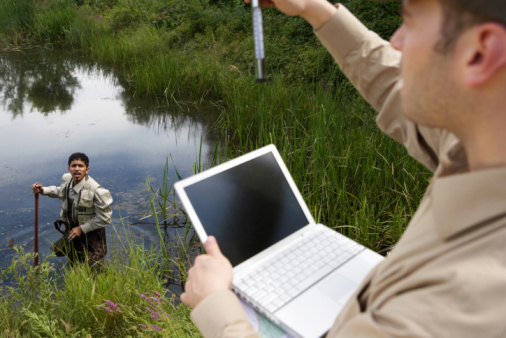Turning Research into Practice by Earning an MPH
The public health field offers career opportunities that may appeal to researchers of disparate professional and academic backgrounds. Researchers who are interested in public health can make important contributions in epidemiology, environmental health, behavioral science and international health. Earning a Master of Public Health (MPH) complements research experience with expertise in public health that are necessary for the study of population-based health issues. Here are a few specific examples of how an MPH could benefit researchers from a variety of fields:
Medical Researchers and Biologists
For medical researchers and biologists, an MPH degree can lead to a career as a public healthepidemiologist. Careers in epidemiology once focused almost exclusively on the study of infectious diseases, but there is increasing emphasis within the public health field on the prevention of chronic diseases, like diabetes and cancer. Understanding the determinants and risk factors for chronic diseases allows scientists and researchers to formulate effective treatment and prevention strategies. An MPH degree provides epidemiologists with the knowledge and skills needed to propose and lead research studies and clinical trials that can have a major impact on public health.
Mental Health Researchers
Mental health researchers who are interested in understanding how environment, culture and community affect the development of mental health disorders can benefit from the public health perspective provided by an MPH degree program. Mental health researchers who focus on public health provide other public health professionals with information that can be used to formulate community-based intervention and prevention programs. They are often members of multidisciplinary teams that include social workers, psychologists, psychiatrists, educators and other mental health professionals.
Environmental Scientists

Environmental scientists will find a wide range of challenges facing the field of environmental health. This evolving field focuses on critical environmental exposures that have an impact on community health. Researchers with a strong environmental background who earn an MPH degree gain additional management skills as well as knowledge in epidemiology and biostatistics. Areas of specialization for public health environmental researchers include toxicology, urban development, air and water quality, noise pollution control, climate change, hazardous materials management and occupational health.
Data Analysts
Data analysts who complete an MPH degree with a specialization in biostatistics are prepared to design, conduct and analyze public health research studies. This specialization provides an education in the quantitative skills required to use statistical methods for biological, biomedical and health services research. Behavioral science, oncology, environmental science, geographic information systems and public health virology are just a few of the research areas that require biostatistics. Career opportunities for biostatisticians are available in local and state health departments, federal agencies and private companies.
Health Researchers
Health researchers who earn an MPH degree with a specialization in global health gain the skills required to conduct research in international settings, which can improve the health and well-being of people throughout the world. In addition to honing a researcher’s critical thinking skills, the degree fosters commitment to improving public health at the global level. Graduates of MPH programs who specialized in global health gain a deeper understanding of the sociocultural factors that affect public health in different countries and are prepared to assume leadership roles in the design and implementation of epidemiologic studies related to national and global health issues.


